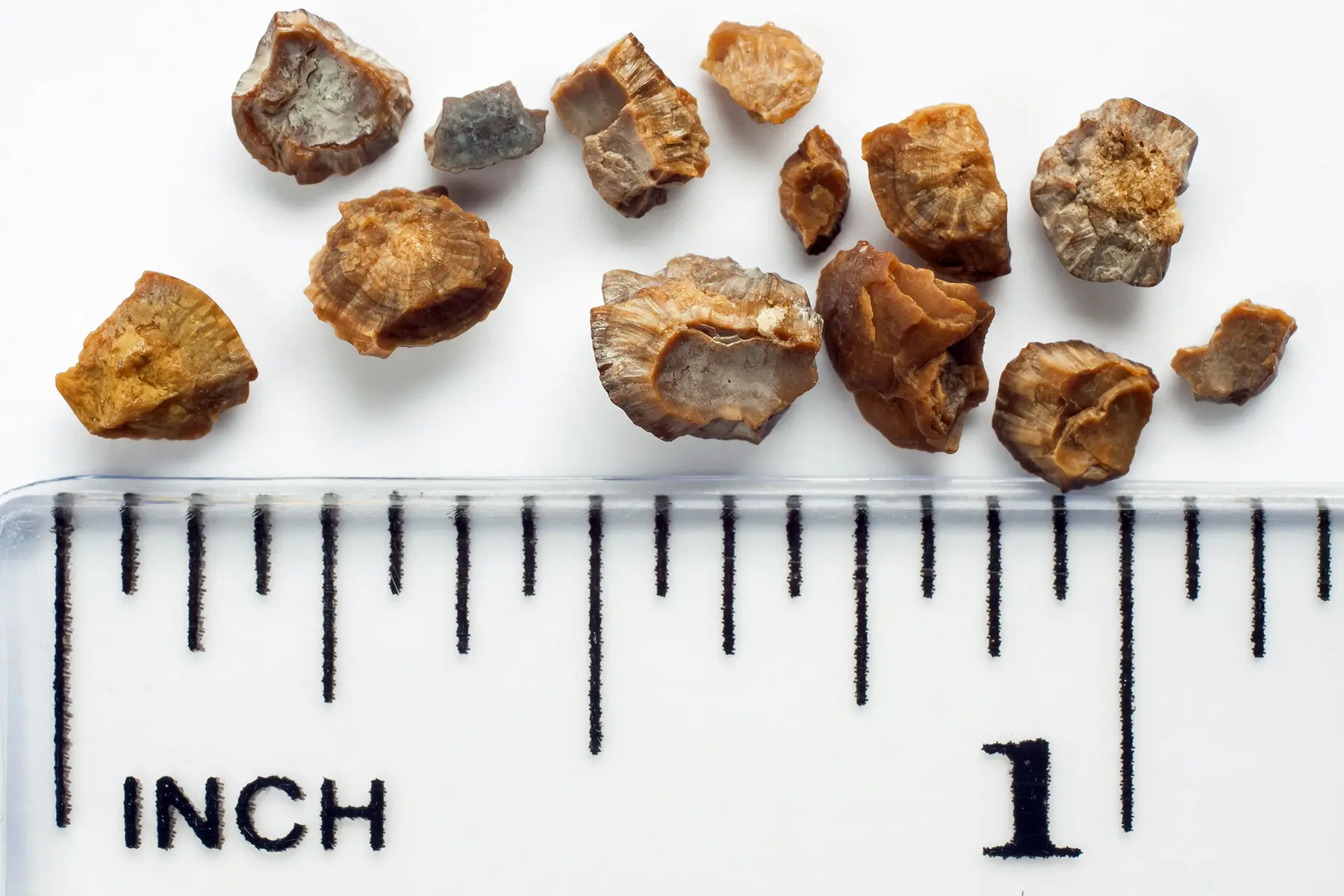Kidney Stones vs UTI: Vital Info on Therapy Choices and Avoidance
Wiki Article
Checking Out the Effects and Causes of Kidney Stones in Comparison to Urinary System System Infections: A Comprehensive Overview
The exploration of kidney stones and urinary system system infections (UTIs) reveals a complicated interaction of symptoms and underlying causes that call for mindful evaluation. While both problems can bring about hematuria, they present unique scientific attributes and arise from different etiological aspects. Recognizing the subtleties of each condition is important for reliable medical diagnosis and management. What are the essential differences in their signs, and just how might these educate therapy strategies? The response to these concerns might supply essential understandings right into the avoidance and treatment of these common urological issues.Overview of Kidney Stones
Kidney rocks, likewise called renal calculi, type when certain compounds in the urine crystallize and aggregate, leading to the growth of tough down payments within the kidneys. These rocks can differ in size, ranging from a grain of sand to a golf ball, and can be made up of numerous products, the most common being calcium oxalate, uric acid, struvite, and cystine. The formation of kidney rocks is affected by several factors, consisting of nutritional routines, fluid consumption, and hereditary proneness.Signs of kidney stones might consist of serious pain in the back or side, blood in the pee, nausea or vomiting, and regular urination, specifically as the stone moves via the urinary system tract. Medical diagnosis normally includes imaging studies such as ultrasound or CT scans, along with urinalysis to determine the rock's structure.
Treatment alternatives vary based upon the size and sort of stone, as well as the intensity of signs (Kidney Stones vs UTI). Small rocks may pass normally with increased liquid intake, while bigger stones might require clinical interventions such as lithotripsy or medical removal. Comprehending the pathophysiology and risk aspects related to kidney rocks is important for reliable prevention and monitoring
Summary of Urinary System Tract Infections
Urinary system infections (UTIs) are common microbial infections that influence any type of part of the urinary system, consisting of the kidneys, ureters, bladder, and urethra. They mostly occur when bacteria, typically from the stomach system, get in the urinary system, leading to swelling and infection.The prevalence of UTIs is notably higher in women than men, mainly because of anatomical differences, such as a shorter urethra. Danger elements include sex, specific contraceptive techniques, urinary retention, and dehydration. The diagnosis of UTIs is typically confirmed through urine tests, which might disclose the visibility of microorganisms, leukocyte, or red cell.

Signs of Kidney Stones
The pain connected with kidney stones can manifest in numerous means, commonly leading individuals to look for clinical interest. One of one of the most typical symptoms is extreme discomfort, normally localized in the lower back or side, which might radiate to the abdomen or groin. This discomfort, typically described as sharp or cramping, can take place unexpectedly and may vary in intensity.Furthermore, individuals might experience hematuria, or blood in the urine, which can range from tiny total up to visible staining. This sign might be gone along with by changes in urinary system practices, such as raised frequency or necessity, in addition to pain during peeing. Queasiness and throwing up are likewise widespread, typically arising from the body's reaction to extreme pain.
Sometimes, individuals may experience high temperature and cools, particularly if an additional infection creates due to the obstruction created by the rocks. In general, the mix of severe pain, hematuria, modified urinary system patterns, and stomach symptoms can supply substantial understanding into the presence of kidney stones, calling for punctual clinical evaluation and intervention. Comprehending these signs and symptoms is crucial for timely diagnosis and efficient administration of the problem.
Symptoms of Urinary Tract Infections
Infections within the urinary tract typically offer an array of distinctive symptoms that can substantially influence life. The most common signs include a relentless urge to urinate, frequently gone along with by a burning feeling during peeing, called dysuria. Individuals might additionally experience raised frequency of urination, producing percentages of urine each time.Other notable symptoms include cloudy or foul-smelling urine, which may indicate the visibility of microorganisms or pus. In many cases, pee may appear pink or red because of the existence of blood, a condition recognized as hematuria. In addition, individuals may experience pelvic pain or pressure, which can further exacerbate the sensation of seriousness.
Systemic symptoms might likewise manifest, such as high temperature, chills, and fatigue, specifically if the infection has risen to the kidneys. It is vital to acknowledge these symptoms early, as unattended urinary system infections can cause much more extreme issues. moved here Kidney Stones vs UTI. Prompt clinical attention is suggested when these signs are observed, enabling ideal diagnostic analysis and treatment to alleviate discomfort and prevent additional health problems
Sources Of Each Problem
Regularly, kidney stones and urinary system tract infections develop from distinct yet often overlapping reasons that can impact people differently. Kidney rocks typically develop as a result of metabolic elements, nutritional choices, and genetic proneness. Increased levels of calcium, oxalate, or uric acid in the pee can bring about stone formation. Dehydration, not enough fluid intake, and high-sodium diet plans can aggravate these conditions, promoting formation within the urinary system tract.
Comprehending these unique causes is crucial for avoidance and therapy. Kidney Stones vs UTI. While way of life modifications might minimize the danger look here of kidney stones, appropriate health and timely treatment of urinary system tract infections are important for reducing their reappearance and connected problems
Verdict
In recap, kidney stones and urinary system system infections present distinctive signs and underlying causes. Kidney rocks are defined by severe discomfort and metabolic elements, while urinary system tract infections primarily entail bacterial infections bring about urinary necessity and discomfort. Both conditions can result in hematuria, their development mechanisms vary considerably. Recognizing these differences is critical for efficient diagnosis and treatment, inevitably enhancing person outcomes for those influenced by either condition.The exploration of kidney rocks and urinary tract infections (UTIs) discloses a complex interplay of signs and underlying reasons that require mindful assessment.Urinary system tract infections (UTIs) are common bacterial infections that influence any part of the urinary system, including the kidneys, ureters, bladder, and urethra.Often, kidney rocks and urinary tract infections emerge from unique yet occasionally overlapping reasons that can influence individuals in different ways.In recap, kidney stones and urinary system tract infections present distinct signs and symptoms and underlying reasons. Kidney rocks are characterized by severe pain and metabolic elements, while urinary tract infections mostly entail microbial infections leading to urinary system necessity and pain.
Report this wiki page